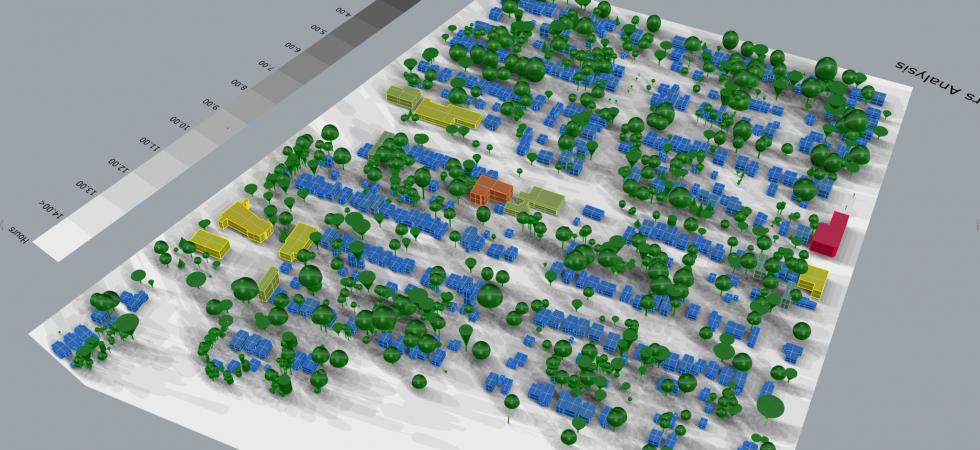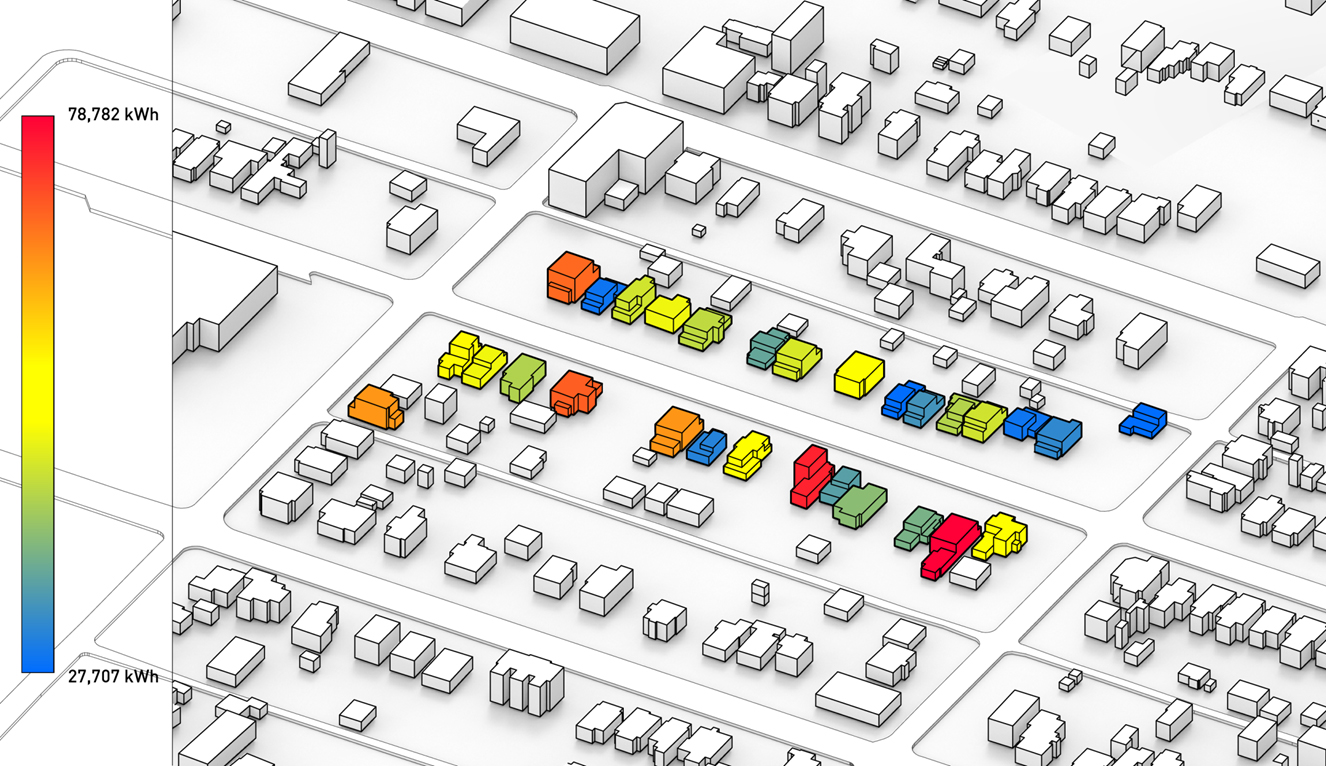
By Iowa State University’s Sustainable Cities team
Researchers with the Sustainable Cities team at Iowa State University recognize the difficulty that public officials face in transforming vast amounts of climate and energy research into contextualized public policy. In attempting to address this critical issue, the team’s mission goes beyond the creation of new climate analysis tools to also investigate new methods for integrating communities into the discourse of data creation and energy conservation. To accomplish this agenda, our team engages in various research avenues that range from the creation of new spatial-data tools to enabling community youth activism. Here are just a few highlights of the team’s most recent achievements:
Sustainable Cities’ team leader Ulrike Passe, associate professor of architecture, presented our hybrid physics data modeling framework at the National Science Foundation-sponsored Research Coordination Networking (RCN) workshop held at Carnegie Mellon University on May 17, 2018. The presentation, which capstones one of the major branches of the Sustainable Cities initiatives, demonstrated the integration of our recently developed thermo-physical data simulator with our research into human energy-use behavior to demonstrate how a more holistic neighborhood energy model could be constructed. This same model was presented by graduate research assistant Himanshu Sharma at the fifth High Performance Building’s Conference on July 9, 2018, at Purdue University.

image from Krejci et al. (2016)
The Community Growers Program, a public-engagement initiative started back in March of 2017, has become another core pillar of the Sustainable Cities group research. Spanning a course of eight weeks, researchers worked with 22 leadership-minded youth in the Baker Chapter of the Boys and Girls Club at Hiatt Middle School in Des Moines, Iowa, to create a community garden based on a methodology of spatial, socio-technical storytelling. Through this process, the youth participants were able to learn more about their community through access to geographic information system (GIS) and spatial mapping tools. Associate English professor Linda Shenk, our community engagement lead, and Mallory Riesberg, a collaborator with the Baker Chapter of the Boys and Girls Club, presented this methodology in a presentation titled, “Fostering the Next Generation of Big Data Scientists and Sustainable City Planners” at The Growing Sustainable Communities Conference in Dubuque, Iowa, on Oct. 4, 2017. Team members Linda Shenk, Passe and Alenka Poplin, assistant professor of community and regional planning, would later be published in the 35th Journal of Interaction Design and Architectures for the inclusion of this work in their entry, titled, Engaging Youth with Pervasive Technologies for Resilient Communities.
Poplin, an established researcher in the field of geo-spatial mapping, also leads a research group that seeks to understand how to better develop feedback loops through innovative user-interfaces. An inquiry into mapping places of emotional power was highlighted in a 2017 paper entry to the second edition of Kartographische Nachrichten on Empirical Cartography Journal, titled, “Mapping Expressed Emotions: Empirical Experiments on Power Places.” More recently, Poplin and her researcher team have begun testing an energy survey game they have developed called E-Footprints. The framework of this game includes the extraction of user-performance data to measure and analyze what learning opportunities may help guide more environmentally efficient decision making. This feedback is then generated back into learning mini-games throughout the game, such that the user gets more “energy savvy” as they play. This project begins field-testing in November 2018.
With a diverse, multifaceted research team of nearly 50 members, the Sustainable Cities group continues to advance the capabilities of communities and cities to think sustainably about a better future.
Image reference:
Krejci, C. C., Passe, U., Dorneich, M. C., & Peters, N. (2016), “A Hybrid Simulation Model for Urban Weatherization Programs”, Proceedings of the 2016 Winter Simulation Conference, Arlington, VA, December 11–14. T. M. K. Roeder, P. I. Frazier, R. Szechtman, E. Zhou, T. Huschka, and S. E. Chick, eds. (pdf)
Read more about the MBDH’s Smart, Connected, and Resilient Communities initiatives.
